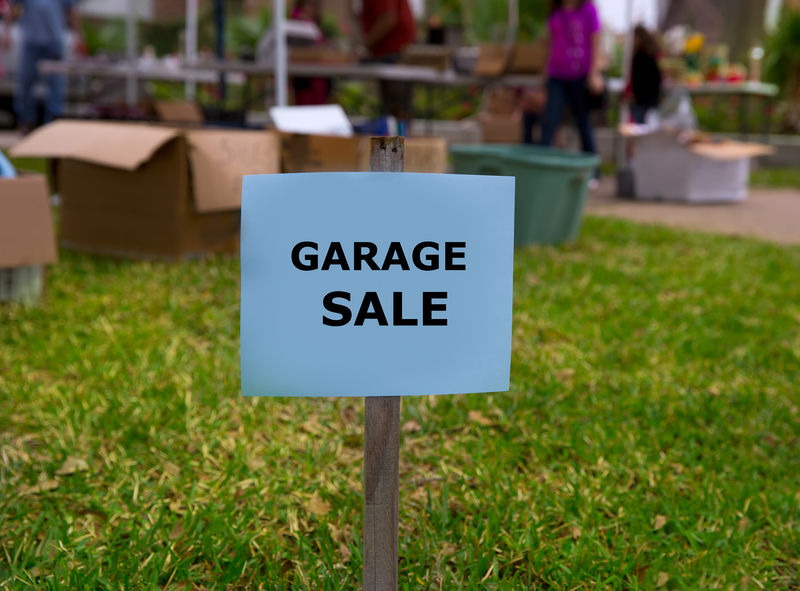Innovative Tips to Minimize Household Waste
Household waste reduction is more crucial than ever. As global awareness around sustainability and environmental protection rises, people everywhere are seeking smarter ways to minimize the garbage they produce at home. Not only does minimizing household waste help conserve resources and protect our environment, but it can also save you money and promote healthier living. This comprehensive guide will explore creative waste reduction methods, practical tricks, and innovative solutions to decrease your home's rubbish footprint. Embrace these actionable steps and join the zero-waste movement today.
Why Should We Reduce Household Waste?
Every year, millions of tons of waste are generated from households, straining landfills, polluting oceans, and emitting greenhouse gases. By minimizing household waste, we:
- Reduce landfill overflow and pollution
- Lower carbon emissions and ecological impact
- Conserve natural resources
- Support a circular economy
- Save money on disposal costs and purchases
Incorporating innovative waste reduction tips in daily life brings both environmental and personal benefits. Let's delve into the most effective ways to minimize waste at home!

1. Master the Art of Smart Shopping
Buy in Bulk and Choose Minimal Packaging
One significant way to reduce household garbage is by avoiding unnecessary packaging. When you buy in bulk, you minimize the amount of plastic and paper waste generated from individually packaged items. Moreover, purchasing items in reusable containers or bringing your own bags and jars can drastically cut down your weekly trash.
- Shop at local bulk stores and bring your own reusable bags or containers.
- Avoid single-use plastics--opt for items sold without packaging when possible.
- Plan meals and shop with a list to prevent overbuying and food wastage.
Choose Reusable Over Disposable
Opt for reusable alternatives like stainless steel straws, beeswax wraps, glass containers, and cloth shopping bags. While these items may require a higher initial investment, they inevitably save you money and curb unnecessary household waste production over time.
2. Composting Kitchen and Yard Waste
Start a Compost Bin
Composting transforms organic scraps from your kitchen and yard into nutrient-rich soil. This simple practice can divert up to 30% of your home waste from landfills!
- Designate a compost bin or pile for food scraps like fruit and vegetable peels, coffee grounds, and eggshells.
- Include yard waste such as grass clippings and leaves.
- Maintain your compost by turning it regularly and keeping a balance of "green" (wet) and "brown" (dry) materials.
Composting not only minimizes garbage from your home but also enhances your garden and cuts the need for chemical fertilizers.
Try Innovative Composting Methods
- Vermiculture: Use worms to break down food scraps--perfect for small spaces and apartments.
- Bokashi: This Japanese method ferments all food waste, including dairy and meat, in an airtight container.
Experiment with these composting options to maximize organic waste diversion.
3. Embrace the Power of Upcycling and Repurposing
Give New Life to Old Items
Many household items find themselves in the trash far too soon. By upcycling or repurposing, you'll extend the lifespan of everyday goods.
- Transform jars and bottles into storage containers, vases, or decorative pieces.
- Convert old T-shirts into cleaning rags or tote bags.
- Repurpose furniture with a fresh coat of paint or new hardware.
A little creativity goes a long way in cutting household rubbish.
Participate in Local Swaps and Online Marketplaces
- Join community swap events to exchange items you no longer need for something useful.
- Use platforms like Freecycle, Facebook Marketplace, or Craigslist to rehome unwanted goods.
This promotes a circular economy and helps others minimize their consumption as well!
4. Optimize Food Storage and Meal Planning
Store Food Smarter
Proper food storage is key to avoiding spoilage and food waste. Use clear containers, airtight jars, and label expiration dates so you can easily see and consume items before they go bad.
- Adopt the "first in, first out" method--use older items before newer ones.
- Freeze leftovers for easy future meals.
- Store produce appropriately--root vegetables in cool, dark places; leafy greens in the fridge.
Plan Meals and Use Up Leftovers
Planning your weekly meals ensures you buy only what you need, and using leftovers creatively prevents food from ending up in the bin.
- Make soups, casseroles, or stir-fries from leftover bits.
- Try a "weekly fridge clear-out meal" to use up everything before restocking.
5. Invest in Quality, Long-Lasting Products
Cheap, disposable items contribute to increasing volumes of waste. Choose high-quality, durable goods that last longer and can be repaired, reused, or recycled.
- Prefer stainless steel or glass over plastic for kitchenware and storage.
- Buy rechargeable batteries and refillable cleaning products.
- Repair broken items wherever possible rather than discarding them.
The less you throw away, the less landfill space you require.
6. Digitize Paperwork and Go Paperless
Paper is a major component of household trash. Going digital has never been easier, thanks to affordable storage, cloud services, and e-billing.
- Switch to online billing and statements.
- Digitize important documents using a scanner.
- Use electronic note-taking apps instead of sticky notes and notebooks.
Recycle remaining paper responsibly, and avoid junk mail by subscribing to "no junk mail" services.
7. Rethink Cleaning and Personal Care Habits
Make Your Own Cleaning Products
Conventional cleaning products often come in single-use bottles and contain harsh chemicals. Try homemade cleaners using vinegar, baking soda, and lemon for a healthier, zero-waste alternative.
- Reuse spray bottles and containers for DIY cleaning mixes.
- Bulk buy ingredients for less packaging.
Try Minimal-Waste Personal Care
- Choose bar soaps and shampoos over bottled liquids.
- Opt for bamboo toothbrushes and washable makeup pads.
- Use refillable deodorants and razors.
Tiny changes in your bathroom can make a big difference in your overall household waste production.
8. Make Recycling Work for You
Understand Local Recycling Programs
Proper recycling is critical to diverting waste from landfills. However, recycling rules differ by location, so stay informed:
- Sort items correctly (paper, plastics, metals, glass).
- Clean containers before recycling to prevent contamination.
- Know what's accepted--some plastics and materials may not be recyclable in your area.
Responsibly recycling helps ensure your efforts to minimize household trash are effective.
Try Advanced Recycling Programs
Many companies now offer take-back programs for tricky items--electronics, lightbulbs, batteries, and even textiles. Find specialized recycling points at local retailers or community centers.
9. Educate and Involve Your Family
Make Waste Reduction a Fun Family Project
Minimizing household waste is easier when everyone participates. Involve kids and adults in sorting, composting, and creative reuse projects.
- Assign waste reduction roles for each family member.
- Set up clear bins for recycling and composting.
- Track progress with a visual chart or game.
Educating your household promotes long-lasting, waste-conscious habits and multiplies the effect of your efforts.
10. Embrace Innovative Zero-Waste Technologies
Smart Home Devices for Waste Reduction
Technology can help monitor and minimize waste. Consider investing in innovations such as:
- Food waste tracking apps to help manage pantry inventory and expiry dates.
- Composters with odor control for apartments and small spaces.
- Water filtration systems to reduce bottled water usage.
Support Sustainable Brands and Products
Choose to purchase from companies committed to eco-friendly packaging, ethical sourcing, and take-back schemes. Supporting such brands encourages industry change while reducing the total waste produced from your purchases.

Bonus Tips: Go the Extra Mile
- Host zero-waste parties with reusable dishes and decorations.
- Encourage neighbors and friends to adopt waste reduction habits.
- Organize community clean-ups to minimize waste in your area.
- Stay up-to-date with new environmental policies and product innovations.
By leading through example and sharing knowledge, you become a catalyst for a wider waste-reducing movement.
Conclusion: Start Your Minimal Household Waste Journey Today
Reducing household waste is an attainable goal, and it begins with mindful decisions in our daily routines. With a mix of innovative waste minimization strategies--from composting and upcycling to smart shopping and digitization--you can significantly lower your environmental impact, save resources, and enjoy a cleaner, more organized home.
Remember, every small action counts. Start small, celebrate progress, and watch as these innovative household waste reduction techniques become second nature. Together, we can create a more sustainable future--one home at a time.
Ready to reduce your household waste? Share your favorite tips and inspire others to join the journey towards zero waste living!
```